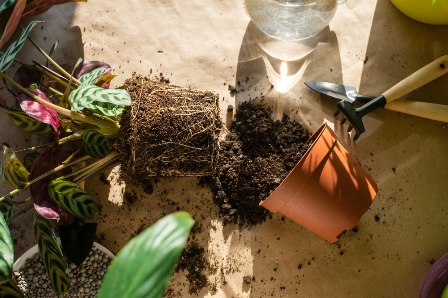Gardening enthusiasts, rejoice! The world of organic fertilizers is vast and fascinating, offering a natural way to nourish your garden. In this article, we delve into the realm of DIY Organic Fertilizers, exploring the advantages, common ingredients, and the process of creating these nutrient-packed mixtures at home.
Understanding Organic Fertilizers
Organic fertilizers, derived from natural sources, have become increasingly popular among gardeners. Unlike synthetic alternatives, organic fertilizers contribute to soil health while minimizing environmental impact. In our exploration, we’ll uncover the essence of these fertilizers and how they differ from their synthetic counterparts.
Advantages of DIY Organic Fertilizers
One of the primary perks of DIY organic fertilizers is their cost-effectiveness. By utilizing common household items and natural resources, you can create a nourishing blend for your plants without breaking the bank. Moreover, these fertilizers align with environmentally friendly practices and allow for customization based on your garden’s unique needs.
Common Ingredients for DIY Organic Fertilizers
To embark on your organic fertilizing journey, gather kitchen scraps, compost, manure, seaweed, and coffee grounds. These readily available ingredients form the foundation of nutrient-rich fertilizers that your plants will love.
Creating Your DIY Organic Fertilizer
Now, let’s get our hands dirty – figuratively! Follow our step-by-step guide to creating a basic DIY organic fertilizer. From fermentation to decomposition, we’ll provide valuable tips to ensure the success of your homemade blend.
Using DIY Organic Fertilizers in Your Garden
Applying DIY organic fertilizers is an art. Learn about various methods, including top-dressing and side-dressing, and understand the dos and don’ts for optimal results. Your plants will thank you for the nourishment.
Benefits for Soil Health
Beyond plant nutrition, DIY organic fertilizers contribute to the improvement of soil structure. Discover how these fertilizers enhance nutrient absorption, fostering a healthy environment for your garden to thrive.
Promoting Plant Growth and Yield
Witness the magic of organic fertilizers as we explore their role in promoting plant growth and increasing yield. Real-life examples of garden transformations showcase the power of natural nourishment.
Addressing Concerns and Myths
In this section, we debunk common misconceptions surrounding DIY organic fertilizers. Concerns related to safety and effectiveness will be addressed, providing clarity for those skeptical about making the switch.
Tips for Troubleshooting
Even the greenest thumbs encounter challenges. Learn to identify issues with your DIY fertilizer and explore effective solutions to common problems. Your journey to a flourishing garden might encounter a bump or two, but we’ve got you covered.
Scaling Up for Larger Gardens
For those with grander gardening ambitions, we discuss how to scale up DIY fertilizers for larger projects. Considerations for cost, time, and benefits are crucial when taking your homemade fertilizers to the next level.
Comparison with Commercial Organic Fertilizers
Wondering if DIY is the right choice for you? We weigh the pros and cons of DIY versus store-bought organic fertilizers, helping you make an informed decision that aligns with your gardening goals.
Environmental Impact
Explore the environmental impact of DIY organic fertilizers and understand their role in promoting sustainability. By reducing the carbon footprint of your gardening practices, you contribute to a healthier planet.
FAQs
DIY organic fertilizers can be just as effective, if not more, depending on the ingredients used and the care taken in their preparation.
The frequency of application depends on various factors, including plant type, soil conditions, and the specific fertilizer blend. Generally, a seasonal application is recommended.
DIY organic fertilizers can be adapted for potted plants. Adjust the quantity based on the size of the pot and the plant’s needs.
When prepared and used correctly, DIY organic fertilizers pose minimal risks. However, it’s essential to follow guidelines to avoid over-fertilization and ensure safety.
Experimenting with various DIY fertilizers is encouraged, as it can provide a broader spectrum of nutrients for your plants. Start with small quantities and observe plant reactions before making significant changes.
Conclusion
DIY organic fertilizers offer a sustainable, cost-effective, and environmentally friendly alternative to commercial options. As you embark on this organic journey, remember that your garden is a unique canvas waiting to be adorned with the natural beauty of homemade nourishment. So, roll up your sleeves, grab those kitchen scraps, and let your garden thrive organically.


